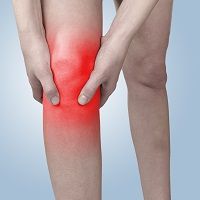Article
Vaccine Style Treatment for Rheumatoid Arthritis on the Way?
Author(s):
Treatment for rheumatoid arthritis may be delivered like a vaccine, according to findings from Science Translational Medicine.

A vaccine style approach to therapy for rheumatoid arthritis (RA) could soon treat the debilitating disease, according to results of a study published in Science Translational Medicine.
Researchers from the University of Queensland in Australia designed a vaccine style treatment, which they called immunotherapy, designed for individuals carrying high risk RA genes and specific RA antibodies. The RA antibodies were called anti CCP, and those patients with RA are called CCP positive — most RA cases are this type, the researchers noted. The catalyst for developing this novel treatment, the authors said, was because current therapies only treat the symptoms of RA and slow its progression but fail to actually treat it.
“Our immune system is made up of specialized cells that move through blood and tissue, preventing disease and fighting infection by distinguishing between what is the body’s own healthy tissue and what is foreign,” Professor Ranjeny Thomas explained in a press release. “This treatment teaches the patient’s immune system to ignore a naturally occurring peptide that is incorrectly identified as ‘foreign,’ resulting in the production of CCP antibodies and causing inflammation. A personalized immunotherapy was prepared for each patient by taking a sample of their blood and extracting a particular type of immune cell called dendritic cells. The patient’s dendritic cells were then challenged with the ‘foreign’ peptide and an immune system modulator. The treated dendritic cells were then injected back into the patient.”
Injections of the patient’s own immune modified dendritic cells were found to be safe for the patient. The injection also aided suppression of the immune system for patients with RA and reduced inflammation, the authors reported.
“At this stage, the technique would not be ideal for widespread treatment or prevention of RA because it’s costly and time consuming,” Thomas continued. “However, the promising results of this trial lay the foundations for the development of a more cost effective, clinically practical vaccine technology that could deliver similar outcomes for patients.”
Delivery technology is being developed by the researchers in a partnership with Dendright Pty Ltd, a UniQuest startup company, and Janssen Biotech Inc., a Janssen Pharmaceutical Company that is part of Johnson & Johnson. The researchers hope that if this treatment technology is successful in patients with RA, they will be able to expand it to treat other diseases like type 1 diabetes.





